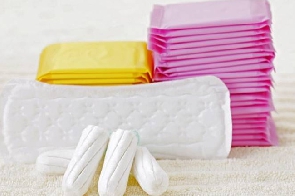Access to sanitary pads remains a significant challenge for many schoolgirls, particularly in low-income communities where financial constraints and cultural stigmas converge to create barriers. For countless young girls, the onset of menstruation can be a source of anxiety and embarrassment, often leading to missed school days and diminished educational opportunities.
In many households, purchasing sanitary products is not prioritised, as families struggle to meet basic needs like food and shelter. As a result, girls might resort to using makeshift materials: old rags, newspapers, or even leaves which can lead to health issues and discomfort.
This lack of access not only affects their physical well-being but also impacts their confidence and ability to participate fully in school activities. Moreover, societal taboos surrounding menstruation can exacerbate these challenges. In some cultures, open discussions about menstruation are considered taboo, leading to a lack of education on the subject.
Girls may feel isolated and unsupported during their menstrual cycles, further hindering their academic performance and social engagement. Additionally, the logistics of accessing sanitary products can be daunting. In rural areas, the nearest store may be miles away, and for those who do have access, the cost of pads can still be prohibitive. The added burden of transportation often requiring long walks in uncomfortable conditions can deter girls from seeking out the products they need.
These challenges create a cycle of disadvantage that can hinder girls' educational journeys and limit their future opportunities. Addressing these issues through initiatives like John Dramani Mahama's promise of free sanitary pads is not only a step towards improving health and hygiene but also a critical investment in empowering the next generation of women.
By ensuring that schoolgirls have consistent access to sanitary products, we can help break down the barriers that have long stood in the way of their education and success.
In response to my initial article on Mahama's free pads, someone sent me a private message telling me that the policy of free sanitary pads is unimportant. I think he is wrong, and I will explain.
Distribution of free pads to schoolgirls is a very important social intervention in the area of menstrual health which is an essential aspect of overall well-being, particularly for young girls navigating their educational journeys.
The government, therefore, plays a pivotal role in supporting menstrual health by implementing policies and programmes that prioritise accessibility and education. By ensuring that sanitary products are readily available and affordable, governments can significantly reduce the barriers that prevent girls from attending school during their menstrual cycles.
So, Mahama's promise to provide free sanitary pads for schoolgirls is a crucial step in fostering an environment where girls can thrive academically without the stigma and discomfort often associated with menstruation. This initiative not only addresses the immediate needs of young women but also emphasises the importance of education on menstrual health.
Initiatives such as these not only empower girls by providing them with the necessary resources but also create a ripple effect in communities, encouraging discussions and breaking down the taboos surrounding menstruation.
Ultimately, the role of government extends beyond just providing sanitary products; it encompasses creating a supportive framework that ensures every girl has the opportunity to pursue her education without interruption. By prioritising menstrual health, governments can empower future generations to reach their full potential, reinforcing the idea that every girl deserves the chance to succeed, regardless of her circumstances.
Opinions of Wednesday, 4 September 2024
Columnist: Anthony Obeng Afrane















